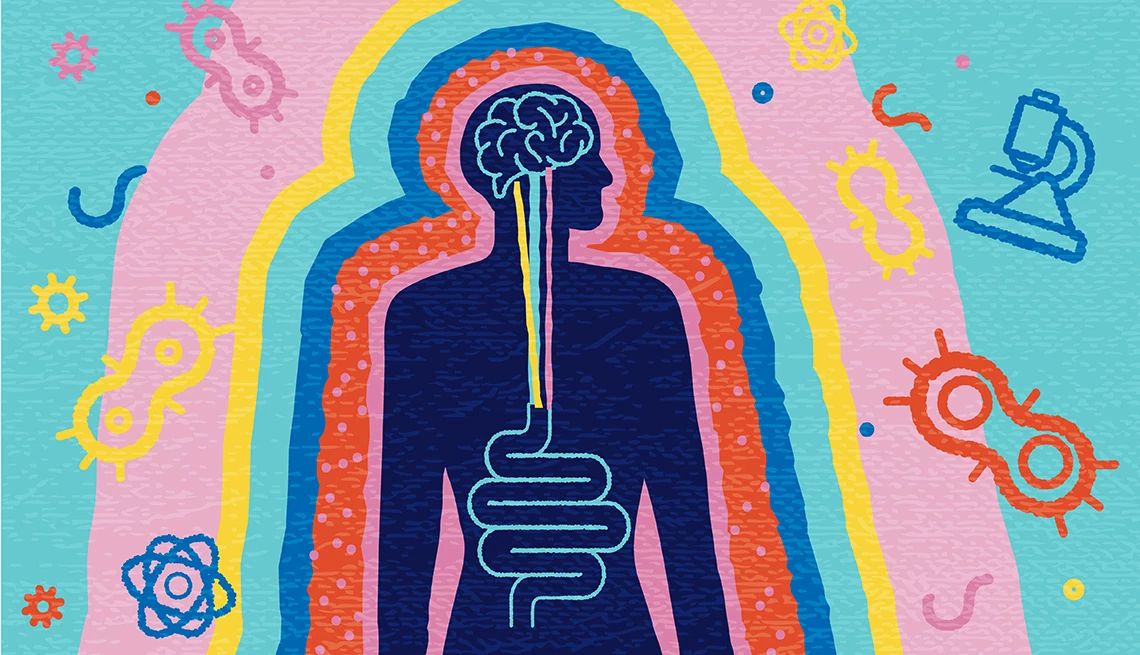Challenges


Your remarkable, complex brain: It’s what makes you uniquely you. Your brain is shaped by your experiences and your genes. Along with, perhaps surprisingly, the microbes living in your colon.
It's astonishing but true. The community of bacteria, viruses and other microorganisms in your GI tract — your gut microbiome — exerts a lot of influence over your mind. In early childhood, your microbiome supports brain development. In adulthood, it affects how well you age and your risk of developing dementia. And every day, your microbiome communicates with your brain as part of a complex relationship known as the brain-gut connection.
The past two decades have seen an explosion of research on the subject. Scientists have made some fascinating, early discoveries, such as a 2018 study in which researchers transplanted gut microbes from severely depressed humans into healthy mice and saw that the mice, too, became anxious and depressed.
There's plenty more to learn, but the evidence thus far shows that a healthy gut microbiome could help protect the brain, while an unhealthy one (defined in part as lacking bacterial diversity, having more potentially “bad” microbes than “good” ones — or both of these things) might make a person more susceptible to inflammation and dementia. Here's a closer look at how your microbiome can influence five key aspects of your brain health.
Brain development
During your first few years of life, both your brain and your gut microbiome develop rapidly. In the brain, billions of neurons and trillions of the connections between them are developing. Scientists theorize that the developing brain may be especially sensitive to the neurotransmitters and other chemicals being made by the microbiome. The makeup of infants’ and toddlers’ microbiomes may be linked to the growth and function of brain areas associated with regulating emotions, language and motor skills, suggests a review of 20 human studies published in Developmental Review in 2022, but larger studies are needed to determine how this may affect brain health, both early and later in life.














More From Staying Sharp
6 Healthy Habits That Can Help Support Brain Health
Your lifestyle choices could have an effect on your brain’s healthThe Power of Music for the Brain
Learn how music can boost your mood and brain health and find out why it's so powerful
5 Tips for How to Cook Grilled Vegetables
Grilling vegetables is an easy way to add amazing flavor to the humble plants